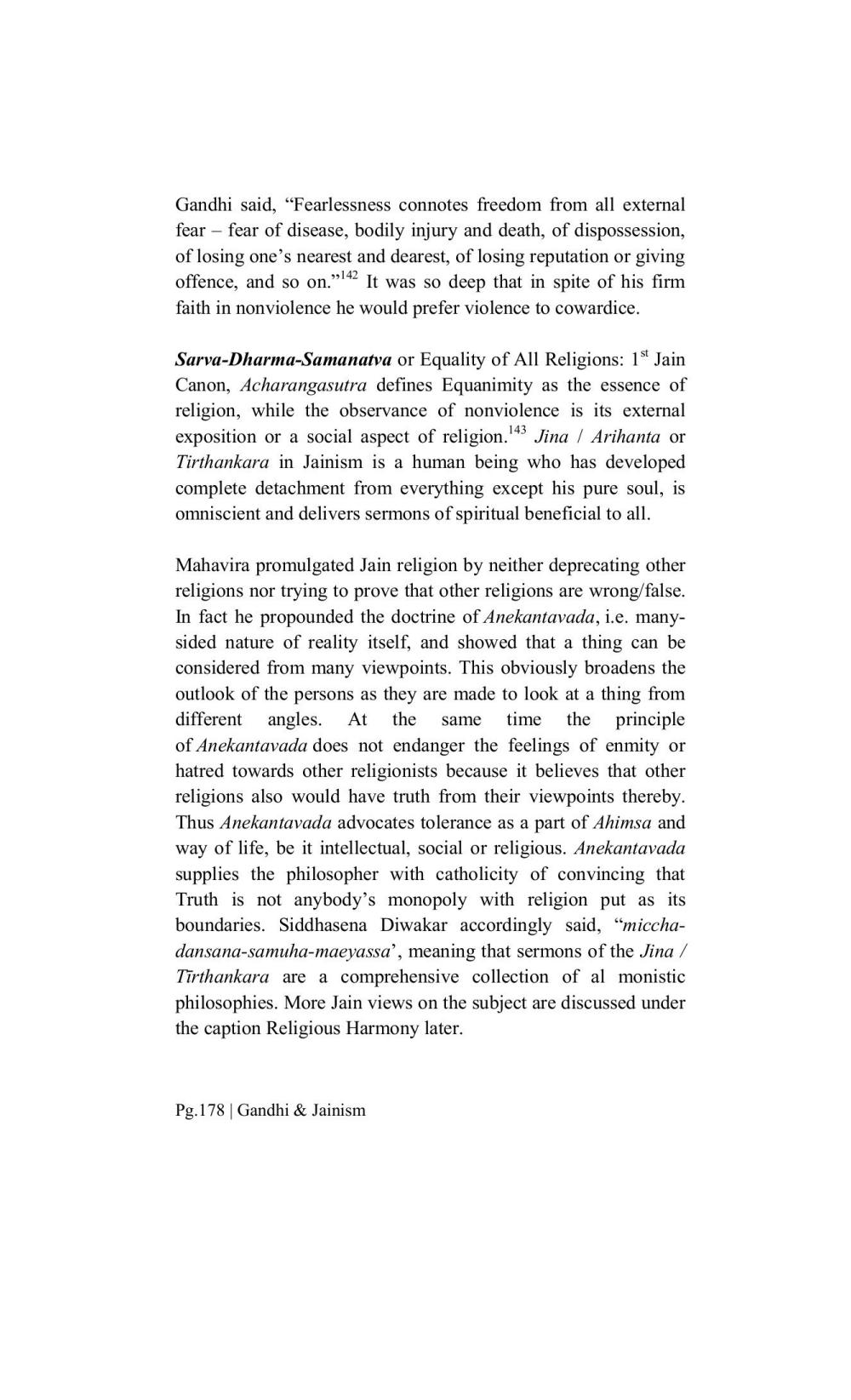________________
Gandhi said, "Fearlessness connotes freedom from all external fear – fear of disease, bodily injury and death, of dispossession, of losing one's nearest and dearest, of losing reputation or giving offence, and so on."142 It was so deep that in spite of his firm faith in nonviolence he would prefer violence to cowardice.
Sarva-Dharma-Samanatva or Equality of All Religions: 1s Jain Canon, Acharangasutra defines Equanimity as the essence of religion, while the observance of nonviolence is its external exposition or a social aspect of religion.143 Jina / Arihanta or Tirthankara in Jainism is a human being who has developed complete detachment from everything except his pure soul, is omniscient and delivers sermons of spiritual beneficial to all.
Mahavira promulgated Jain religion by neither deprecating other religions nor trying to prove that other religions are wrong/false. In fact he propounded the doctrine of Anekantavada, i.e. manysided nature of reality itself, and showed that a thing can be considered from many viewpoints. This obviously broadens the outlook of the persons as they are made to look at a thing from different angles. At the same time the principle of Anekantavada does not endanger the feelings of enmity or hatred towards other religionists because it believes that other religions also would have truth from their viewpoints thereby. Thus Anekantavada advocates tolerance as a part of Ahimsa and way of life, be it intellectual, social or religious. Anekantavada supplies the philosopher with catholicity of convincing that Truth is not anybody's monopoly with religion put as its boundaries. Siddhasena Diwakar accordingly said, "micchadansana-samuha-maeyassa', meaning that sermons of the Jina/ Tīrthankara are a comprehensive collection of al monistic philosophies. More Jain views on the subject are discussed under the caption Religious Harmony later.
Pg.178 Gandhi & Jainism




